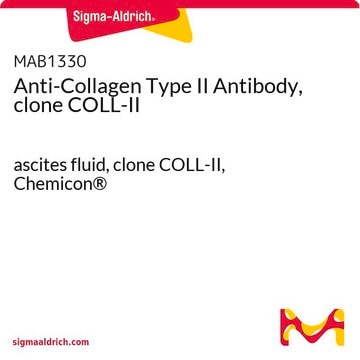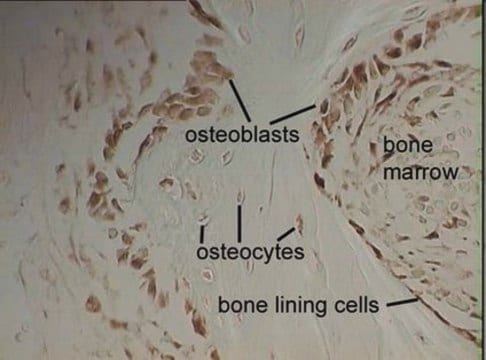234196
Anti-Collagen Type X Rabbit pAb
liquid, Calbiochem®
About This Item
Productos recomendados
biological source
rabbit
Quality Level
antibody form
serum
antibody product type
primary antibodies
clone
polyclonal
form
liquid
does not contain
preservative
species reactivity
human, mouse, rat
manufacturer/tradename
Calbiochem®
storage condition
OK to freeze
avoid repeated freeze/thaw cycles
isotype
IgG
shipped in
wet ice
storage temp.
−70°C
target post-translational modification
unmodified
Gene Information
human ... COL10A1(1300)
General description
Immunogen
Application
Immunoblotting (1:100-1:300)
Immunoprecipitation (1:20-1:40)
Paraffin Sections (see application reference; pretreatment required)
Warning
Physical form
Reconstitution
Other Notes
Schmid. T.M., and Linsenmayer, T.M. 1985. Dev. Biol. 107, 373.
Legal Information
¿No encuentra el producto adecuado?
Pruebe nuestro Herramienta de selección de productos.
Storage Class
10 - Combustible liquids
wgk_germany
WGK 1
flash_point_f
Not applicable
flash_point_c
Not applicable
Certificados de análisis (COA)
Busque Certificados de análisis (COA) introduciendo el número de lote del producto. Los números de lote se encuentran en la etiqueta del producto después de las palabras «Lot» o «Batch»
¿Ya tiene este producto?
Encuentre la documentación para los productos que ha comprado recientemente en la Biblioteca de documentos.
Nuestro equipo de científicos tiene experiencia en todas las áreas de investigación: Ciencias de la vida, Ciencia de los materiales, Síntesis química, Cromatografía, Analítica y muchas otras.
Póngase en contacto con el Servicio técnico








